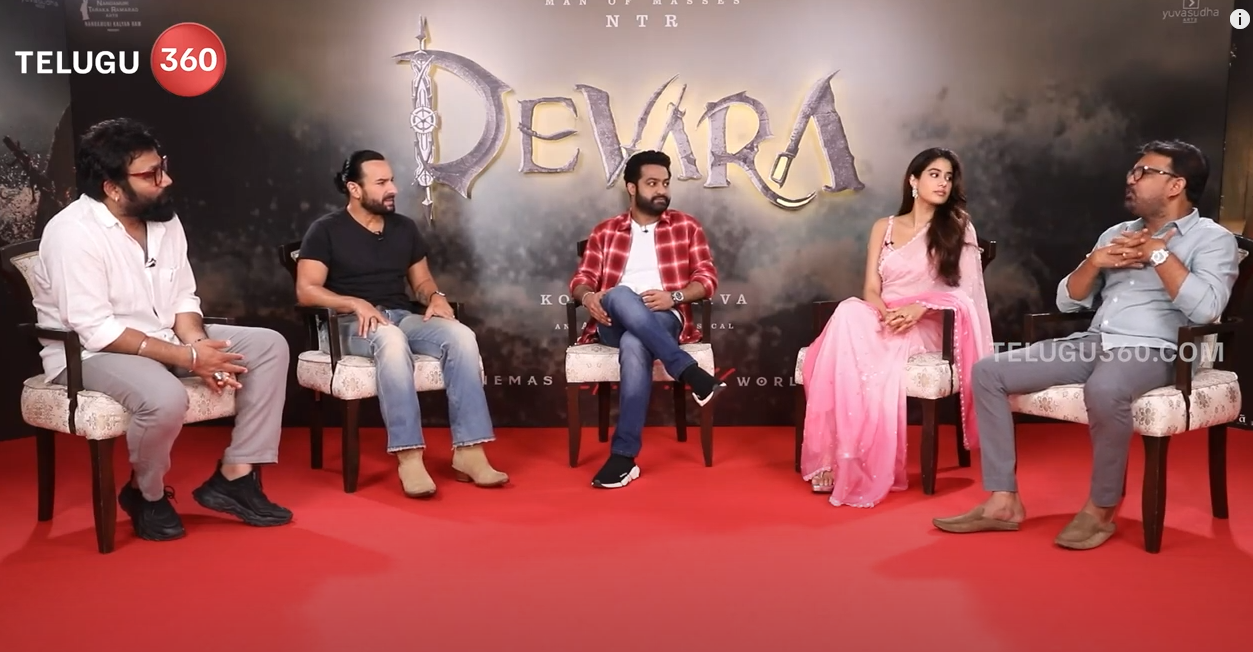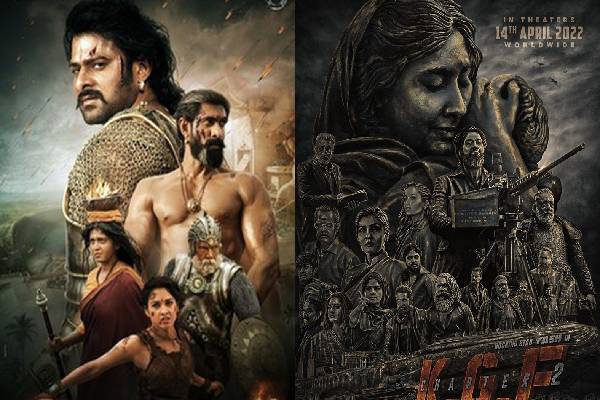Emotions, strong content, captivating storytelling, great visual effects, breathtaking action scenes and star cast from across movie industries is what is making some multilingual films from South rock at the box-office in recent times and emerge as pan-India movies.
From ‘Baahubali’ to ‘KGF 2’, all the blockbusters have a common element of emotions while creativity by the filmmakers with the use of the state-of-the-art technology and action added to their success.
Filmmakers and others connected with Tollywood attribute the new trend of pan-India movies to the availability of various social media and OTT platforms helping the audience to make informed choices and the new means of communication facilitating fast spread of the word about movies with good stories irrespective of the languages they are made in.
They hailed the new trend which removed the language barrier and offered a level-playing field to regional film industries and the actors and artists. The filmmakers believe this trend augurs well for the new generation.
The trend of dubbing movies in multiple languages, including Hindi, and releasing simultaneously all over India started with ‘Baahubali: The Beginning’ (2015) directed by S. S. Rajamouli, who went beyond the Telugu states to tap other regional and Hindi markets and even international opportunities.
Two years later came its sequel ‘Baahubali 2: The Conclusion’ which broke all the records to emerge as the highest-grossing movie with reported collections of over Rs 500 crore in Hindi.
The two-part epic-fantasy franchise not only marked the arrival of Tollywood on the big platform but set a new trend of filmmaking in India.
Though simultaneously made in Telugu and Tamil, it was dubbed in Malayalam and Hindi, targeting the entire Indian market. It dazzled movie lovers beyond boundaries and was even dubbed in Japanese, Russian and Chinese.
After Tollywood, it was the turn of Kannada film industry to continue the crossover trend with ‘KGF: Chapter 1’ in 2018. Written and directed by Prashanth Neel and starring Yash in the lead, it brought recognition to Kannada industry, which was not considered strong like Telugu and Tamil film industries.
Like ‘Baahubali-2’, the sequel of KGF ‘KGF: Chapter 2’ broke new records to become third highest grosser in Hindi in two weeks.
‘KGF: Chapter 2’, released in Hindi, Kannada, Malayalam, Tamil and Telugu, also stars Sanjay Dutt and Raveena among many others.
Tollywood continued its march in the new trend with director Sukumar’s ‘Pushpa: The Rise’ featuring superstar Allu Arjun in the lead.
Released pan-India in December 2021, the film has already grossed a whopping Rs 365 crore. ‘Pushpa-2’ , which is set to commence production soon, is expected to follow in the footsteps of ‘Baahubali’ and ‘KGF’ series.
Last month , Rajamouli came back to recreate his magic with ‘RRR’ starring Ram Charan Teja and Junior NTR along with Bollywood stars Ajay Devgan and Alia Bhatt.
These movies started a new trend. It was no longer filmmakers picking a hit Telugu or Tamil film and re-making it in Hindi with Bollywood star cast.
Since re-making regional films starring actors like Rajinikanth, Chiranjeevi, Vikram, Surya into Hindi costs huge sums, the producers started dubbing as it was the cheapest way to reach a larger audience.
While dubbing of Tamil, Telugu and other regional films and even Hollywood films into Hindi is not new, the availability of digital technology has made the process smooth and the mixing of various ingredients has ensured success.
Filmmaker Laxman Murari termed this a new trend of making grandeur films. He pointed out that television channels every day show six-seven South Indian movies dubbed in Hindi but not every dubbed version is liked by people.
“Today, I can find 100 movies on different online platforms in no time. With the increase in the number of platforms, the awareness about movies increased,” he said.
The audience wants greater enjoyment in a small time and with less expenditure. This is why even 10-30 second videos have become immensely popular.
Laxman, who is engaged with dubbing of several films, pointed out that unlike in the past when dubbing had several challenges like lip synchronisation, the digital technology has helped overcome them.
Another filmmaker DR B K Kiran Kumar is of the view that audiences don’t want to watch family dramas in theatres as they can watch any number of ‘saas bahu’ stories on multiple television channels.
“Family drama films can’t run in theatres also because of increasing ticket prices. Who will spend Rs.500 to Rs.1000 for the first day show to watch family dramas. The audience wants to watch movies with great visuals and sound effects,” he said.
He pointed out that ‘Baahubali’ is just a folktale but it was made as a visual wonder with several scenes like Hollywood movies. Similarly ‘RRR’ is a normal subject but Rajamouli made it a fiction and visual wonder made with Independence and British backdrop. ‘KGF’ is an action oriented movie with special effects. However, he believes these movies are much more than mere visual wonders
According to Kiran Kumar, who is a faculty professor at a leading filmmaking institute in Hyderabad, the first preference in storytelling is emotion and that’s where all these movies clicked.
‘Baahubali’ is all about emotions between two brothers and between ‘saas’ and ‘bahu’ inspired by Ramayana and Mahabharata stories. ‘Pushpa’ is also about emotions. In ‘KGF’ you find emotions of a mother while ‘RRR’ is based on patriotic emotions
“In these movies, everything is connected to Indian culture and Indian emotions. Everything is India be it dance, songs and costumes,” he said
Though multi-lingual ‘Saaho’ and ‘Radhe Shyam’ starring ‘Baahubali’ fame Prabhas were big-budget movies, they did not meet with much success. When emotions don’t connect, people won’t accept movies irrespective of the language, explained Kiran Kumar.
Tollywood has contributed three out of five pan-India blockbusters. Tollywood observers say it is the second largest film industry in the country after Hindi.
The Telugu film industry makes 250-275 movies every year. About 175 films are made in Telugu while about 100 films are dubbed from other languages. The budget varies from Rs 1-2 crore to Rs 200 crore.
Every year 25-30 Hindi movies are made with a Rs 100 crore budget while the number of Tollywood movies in this bracket will be around 12. Tamil industry ranks third in this category with 3-4 films.
The changes in direction are also attributed to technological development. “Previously with negatives and reels, filmmaking was very costly and with limited budget, filmmakers had to do the tight rope walking. With everything digitised today, we can take hundreds of retakes and all these will be stored in chips or memory cards,” said Kiran Kumar
“With OTT, world cinema is in our hands. People are watching quality cinema and quality stories. They watch the movies in the languages they are made in but with subtitles they understand the soul of the story,” he said
Kiran considers this as a good beginning which will continue. He, however, believes that in the next 3-5 years there will be no-pan India movies, there will only be Indian movies. Any language film can beat all if it has good content and story. “You will have a movie where the main character can be from Tamil and Telugu, the villain could be somebody from Bollywood and there can be other characters from other regional movies,” said the director.
He also believes that since single-screen theatres have disappeared and there are all multiplexes with 3-4 screens, a situation may come where films in different languages will be screened simultaneously.
He pointed out that there are three aspects in filmmaking – art, creativity and business. Producers see it from the business aspect, filmmakers see creativity while common people see the art aspect.
On the flip side, he believes, pan-India movies can limit the opportunities for local talent. Filmmakers will hire the best talent from around the world. “A cinematographer can come from China, a fight master from the US, another technician from London or Japan. The opportunities for Indian technicians especially in regional cinema will come down. The local talent will be only for junior artists and small work,” he said.
Kiran also faulted the trend of filmmakers boasting their movie budgets to create a hype. “These days, no producer or director is saying that we will come out with a good story. They are announcing we will make Rs.300 crore, Rs.500 crore or Rs.700 crore budget movies with x, y, z actors,” he said and cautioned that a big budget with some big star can’t guarantee success without a strong story.
He said people were laughing at those making movies with a budget of Rs 1 or Rs 2 crore. “People talk about super hit movies like Baahubali, KGF, RRR made with big budgets but what about hundreds of movies made in between,” he asked.
He said even if a movie is made with a small budget but has a good story, it is getting recognition. He cited the example of Marathi movie ‘Sairat’ which was made with Rs 50 lakh but became the highest-grossing Marathi film of all time.
























